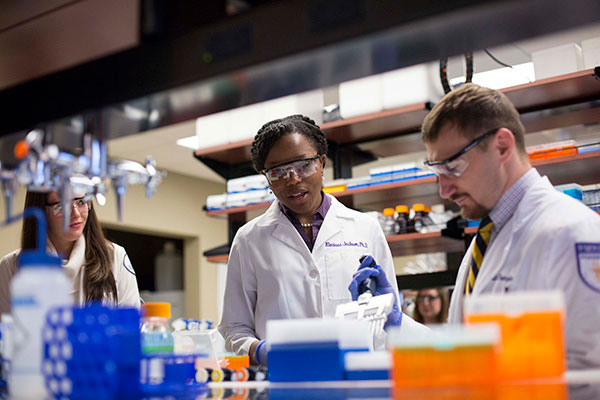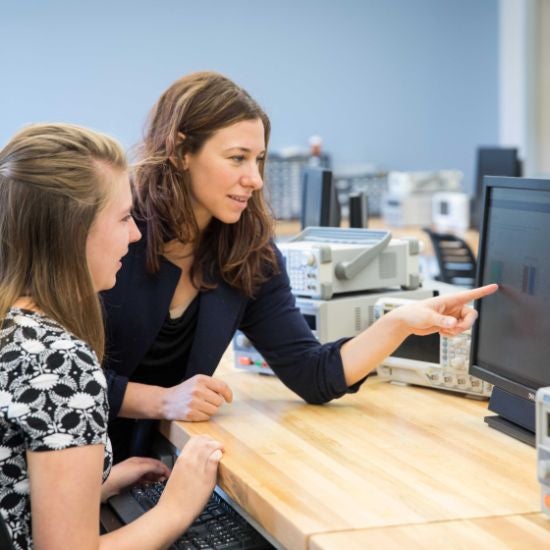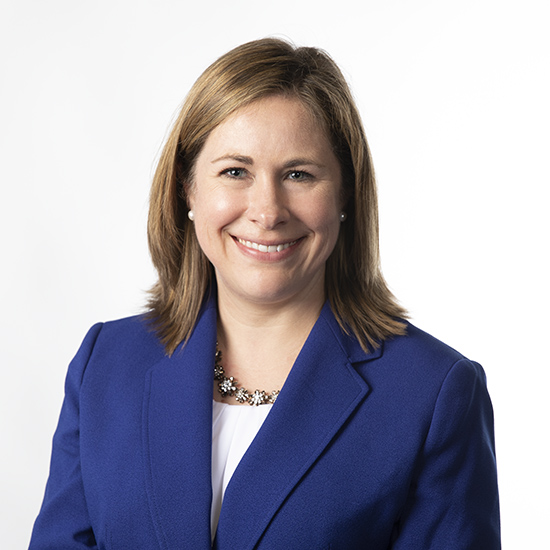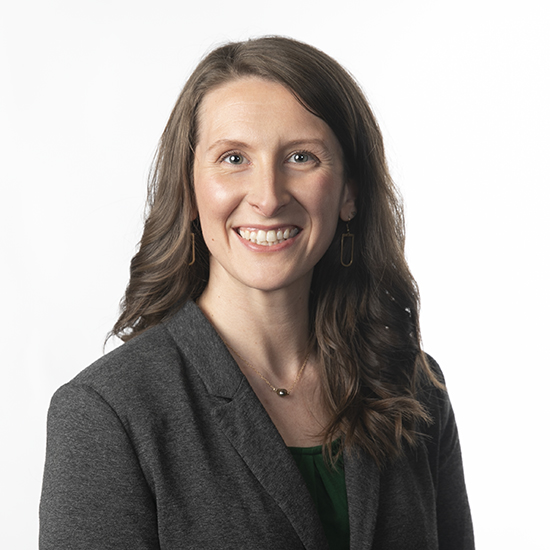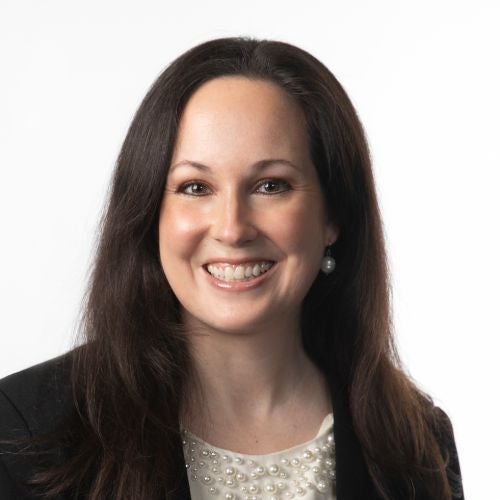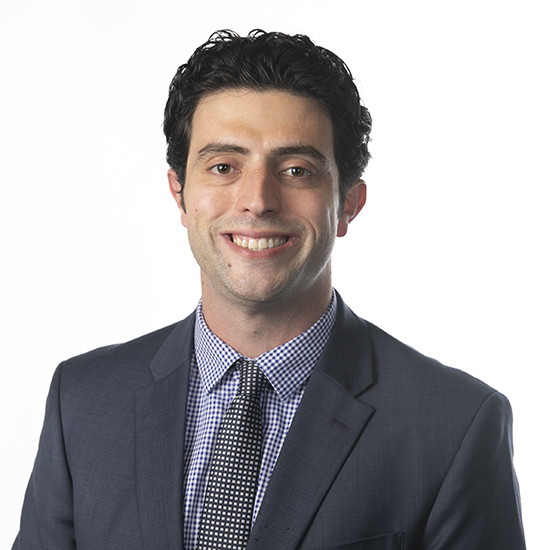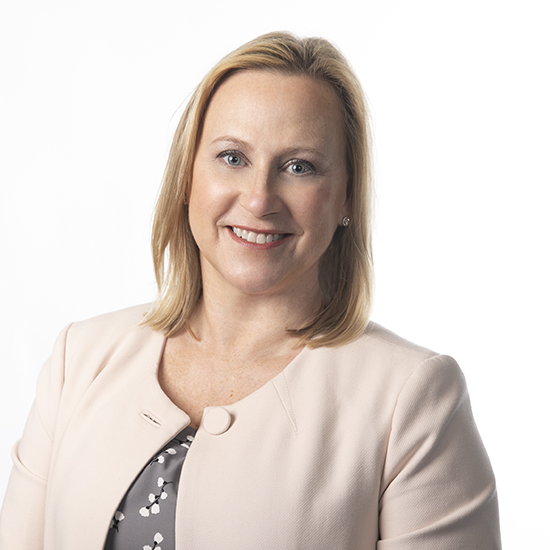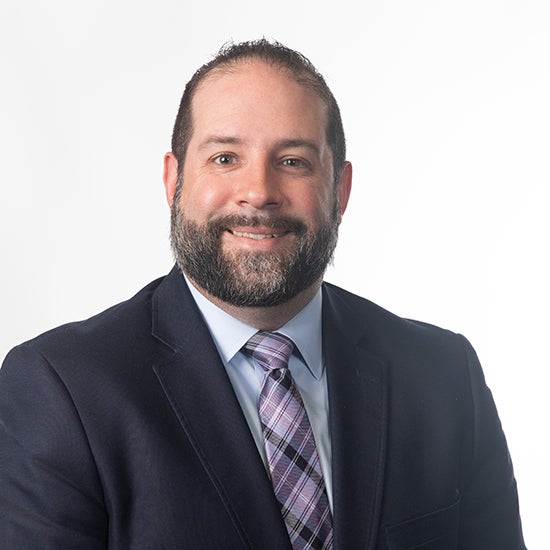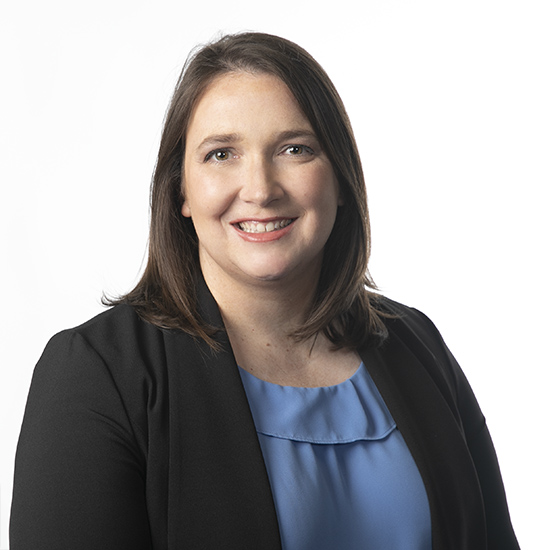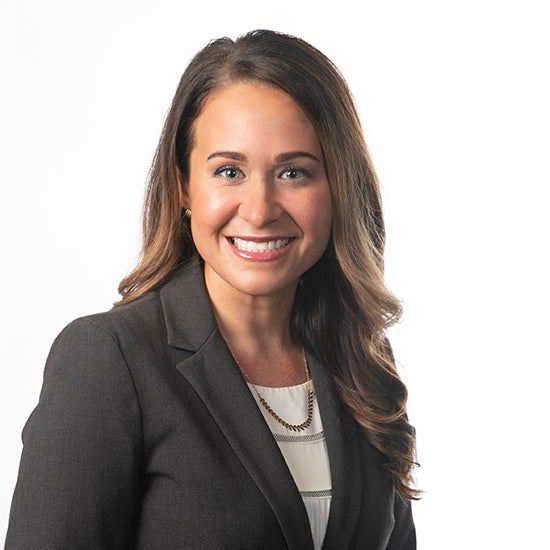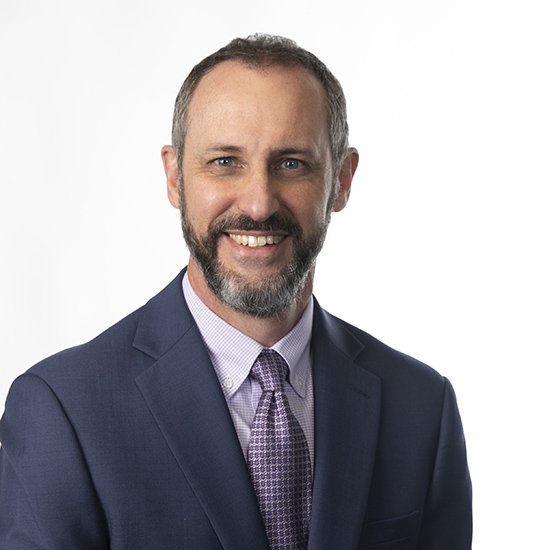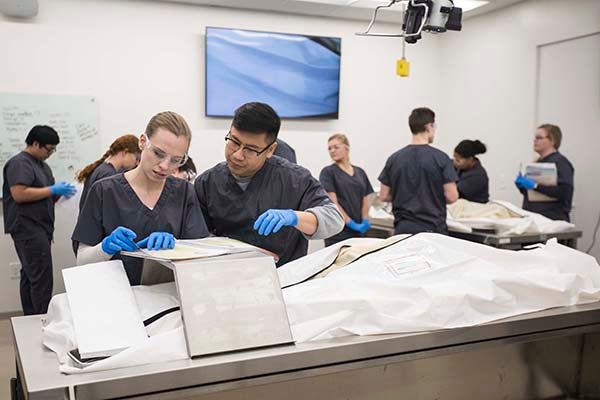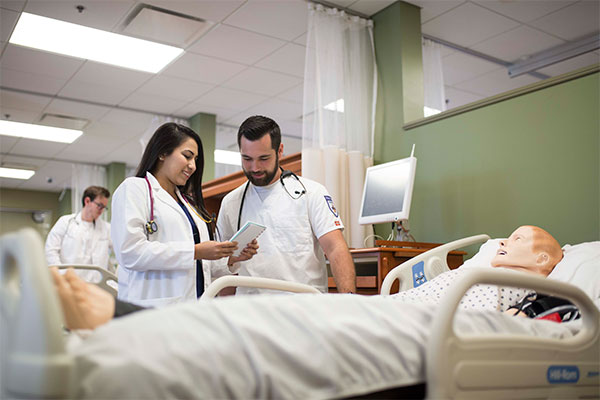Program Overview
An established Pharm.D. program based in the health care capital of America, in-person and now online!
Join a community of expert pharmacists who provide compassionate care when you earn your Pharm.D. in a flexible program with high-quality clinical experiences. Choose to learn on campus in Nashville or learn online wherever you are: both options provide the same rigorous curriculum and training.
Our Top 25 Residency Match Rate is evidence of student and programmatic success in pharmacy education. The graduating class of 2024 achieved a 90.1% residency match. And with our 100% job placement rate, we're confident that when you've earned your degree, you'll have a fulfilling career to go with it. Let our expert faculty share their clinical knowledge embodied with Christian values.
The online Pharm.D. pathway is designed to meet the growing demand for highly skilled
pharmacists by offering a flexible, innovative option for students seeking a rigorous and comprehensive education. This pathway includes both asynchronous and synchronous online coursework with in-residence immersions for labs and experiential learning, ensuring hands-on proficiency with cohorts beginning each August. This new offering complements Lipscomb’s highly regarded traditional, in-person Pharm.D. pathways with August and January entry points.
Lipscomb is one of only a few schools to offer a January start, available to on-campus students, as a year-round option for those desiring to complete their degree in less than four years. The schedule provides one summer break following the P2 year instead of breaks after both P1 and P2 years, while still allowing for traditional content delivery and time for you to pursue a dual degree.
Additionally, you have the opportunity to maximize your time, money and effort when you choose one of our dual degree programs available to both on-campus and online students.
Program Outcomes
Gain a greater understanding of other health care providers with interprofessional learning. Choose from experiential practice locations of the highest quality and variety.
Our program offers::
- Introductory Pharmacy Practice Experiences (IPPE rotations) offered in 5-week blocks in a variety of pharmacy settings beginning early the P1 year and continuing through the P3 year.
- 9 Advanced Pharmacy Practice Experiences (APPE rotations) will be completed during your P4 year. Students will take required and elective experiences in a variety of practice settings including an option for international pharmacy experience. Depending on your pathway, you may select Nashville and/or your home location for these month-long experiences.
- 10-week paid summer research opportunity including hands-on laboratory research. Selected students interested in drug discovery, evaluate scientific literature, develop and present a poster or seminar, and explore research career opportunities in the biomedical and pharmaceutical sciences for students.
- Students will participate in the Vanderbilt Interprofessional Health Education Collaborative (VIPHEC), an exclusive partnership between Vanderbilt University School of Medicine and Lipscomb University College of Pharmacy. This program prepares students to work as part of an interdisciplinary team in the care of patients.
| Career Exploration CenterDiscover your passion and take courses to support your health care career goals. The Career Exploration Center provides personalized guidance to help students identify their strengths, align their skills with industry needs, and find suitable career paths. The center also answers any questions you may have, helping navigate your career journey with confidence. Resources are available to explore different pharmacy specialties and discover which path suits you best:
|
Admissions Requirements
Our Admissions Process
The College of Pharmacy utilizes a rolling admissions process and a holistic application review to identify appropriate candidates for interviews and potential enrollment. The application opens in mid-July each year for enrollment in January or August of the following year. Application reviews and interviews are ongoing throughout the fall and spring semesters or until the class is full. Applicants are encouraged to apply early! The PCAT is not required for admission.
Understanding Holistic Application Reviews
Many factors are considered in the holistic review of the application, interview and admissions process. They may include the following: academics, communication skills, letters of recommendation, problem-solving skills, professionalism, work experience, degree earned, research, volunteer service, interview performance, attitude, timeliness and other factors that help differentiate those applicants that possess the highest likelihood of succeeding as part of the health care team.
Certain exceptions may be granted on an individual basis concerning admission requirements. No assurances or guarantees are given or implied based on the completion of the prerequisites or achieving a high level of academic performance.
Courses
Tuition & Aid
First-Year Tuition and Fees 2025-26
| Tuition | Fees* | Total | |
|---|---|---|---|
| Fall Semester | $19,969 | $2,406 | $22,375 |
| Spring Semester | $19,969 | $2,206 | $22,175 |
| Total Cost** | $39,938 | $4,612 | $44,550 |
* Fees include: Insurance, Labs, Technology, Student Activity, etc.
** All amounts shown are estimates and subject to change. Online pathway students are responsible for travel, food, and lodging expenses during immersion experiences.
Students who complete FAFSA (Free Application for Federal Student Aid) may be eligible for Federal Direct Loans and/or Graduate PLUS loans. Tuition and fees are the same for both in-person and online pathways.
Online Pathway Estimated Expenses for Immersions
Costs for participating in the immersion portion of the program have also been considered by factoring in a 5-night/6-day stay for experiences planned 1 time during each semester and for the one-month immersion experience planned during the P4 year. In addition, students should plan for one week of on-campus orientation in the first week of the P1 year. The chart below includes estimates for students flying to Nashville versus those within a drivable distance.
1 Week Immersions During Each Semester
| Airfare | Driveable | ||
|---|---|---|---|
| Airbnb in Green Hills - $75 per person/night | $375 | Airbnb in Green Hills - $75 per person/night | $375 |
| Car Rental or Uber - $30 per person/day | $150 | Gas | $275 |
| Airfare | $400 | ||
| Estimated Cost | $925 | Estimated Cost | $650 |
1 Month Nashville Immersion During P4 Year
| Airfare | Driveable | ||
|---|---|---|---|
| Campus Housing - $40 per person/night | $1,200 | Campus Housing - $40 per person/night | $1,200 |
| WeGo Public Transportation | $0 | Gas | $275 |
| Airfare | $400 | ||
| Estimated Cost | $1,600 | Estimated Cost | $1,475 |
Job placement rate
residency match for Class of 2024
Our Faculty
Meet our faculty.
Student-to-faculty ratio
Career Paths
Community Practice Pharmacist
Utilizes medication and clinical knowledge to ensure patients receive the most appropriate mediation therapy in a convenient and cost-effective way.
Hospital Pharmacist
Works directly with doctors, nurses and patients to make sure each patient receives the correct medication and dosage. They evaluate patient lab reports to offer consult for alternative medication options and work directly with patients to ensure they understand their medications while in the hospital and as they are discharged.
Research and Development
As a pharmaceutical researcher, you can play a large role in helping to discover and develop new medications, medical devices and therapies to bring advancements in the health services.
Managed Care
When you work in managed care pharmacy, you liaison with patients and prescribers to ensure the right medications are administered for the right purpose. You deeply understand a patient’s history and the effects of the drugs being prescribed.
Other Pharmacist Careers
Research and Development, Academia, Long-Term Care, Home Health Care, Patient Advocacy, Managed Care
